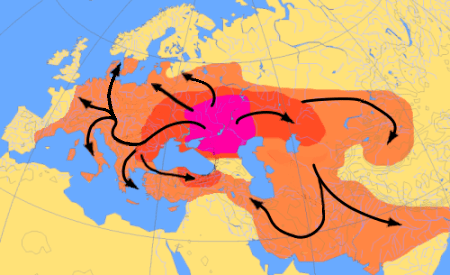Corthos
Great Old One
Heya folks! =) I have to admit that prior to finding this forum, I never even knew that Zoroastrianism ever existed. It seems to me, after looking into it some, that Gathic Zoroastrianism reflects many of my own personal beliefs/ideas about God. I do have some questions, though...
From what I understand, Zoroastrians have a strong reverence for truth. Truth comes from Ahura Mazda, and lies come from Ahriman (or do I have that wrong?). What about white lies, or lies told for the greater good/with good intention? Even if they result in making a bad situation better, or are meant to protect people from undue harm that the brutal truth would inflict, are they still an evil thing?
Also, from what I read, there are 3 staple principles of Zoroastrianism. Good thoughts, good words, and good deeds. I love this... =) From what I also read, there are a lot of rituals associated with this religion... I guess I'm wondering if there are many Dogmas or rules that must be kept with this religion, or is it really just as simple as those 3 ideas?
It seems, according to some Christian sources that I've read, that they think that the wise men who brought gifts to Jesus at his birth were Zoroastrian Magi. I know that's kind of an odd thing to bring up, but I'm wondering how you folks (as Zoroastrians) feel about this. Not sure I believe any of that, but it seems interesting to me that Zoroastrians would be mentioned in the Bible in such a reverent way (especially when they would be considered pagans by Christians).
Lastly, I understand that people of certain backgrounds aren't accepted as converts by Parsis. What about Iranian Zoroastrians? Also, what about Parsi communities in America? Is acceptance into the community something that only "fringe" Gathic Zoroastrians practice?
Thanks! =)
From what I understand, Zoroastrians have a strong reverence for truth. Truth comes from Ahura Mazda, and lies come from Ahriman (or do I have that wrong?). What about white lies, or lies told for the greater good/with good intention? Even if they result in making a bad situation better, or are meant to protect people from undue harm that the brutal truth would inflict, are they still an evil thing?
Also, from what I read, there are 3 staple principles of Zoroastrianism. Good thoughts, good words, and good deeds. I love this... =) From what I also read, there are a lot of rituals associated with this religion... I guess I'm wondering if there are many Dogmas or rules that must be kept with this religion, or is it really just as simple as those 3 ideas?
It seems, according to some Christian sources that I've read, that they think that the wise men who brought gifts to Jesus at his birth were Zoroastrian Magi. I know that's kind of an odd thing to bring up, but I'm wondering how you folks (as Zoroastrians) feel about this. Not sure I believe any of that, but it seems interesting to me that Zoroastrians would be mentioned in the Bible in such a reverent way (especially when they would be considered pagans by Christians).
Lastly, I understand that people of certain backgrounds aren't accepted as converts by Parsis. What about Iranian Zoroastrians? Also, what about Parsi communities in America? Is acceptance into the community something that only "fringe" Gathic Zoroastrians practice?
Thanks! =)

